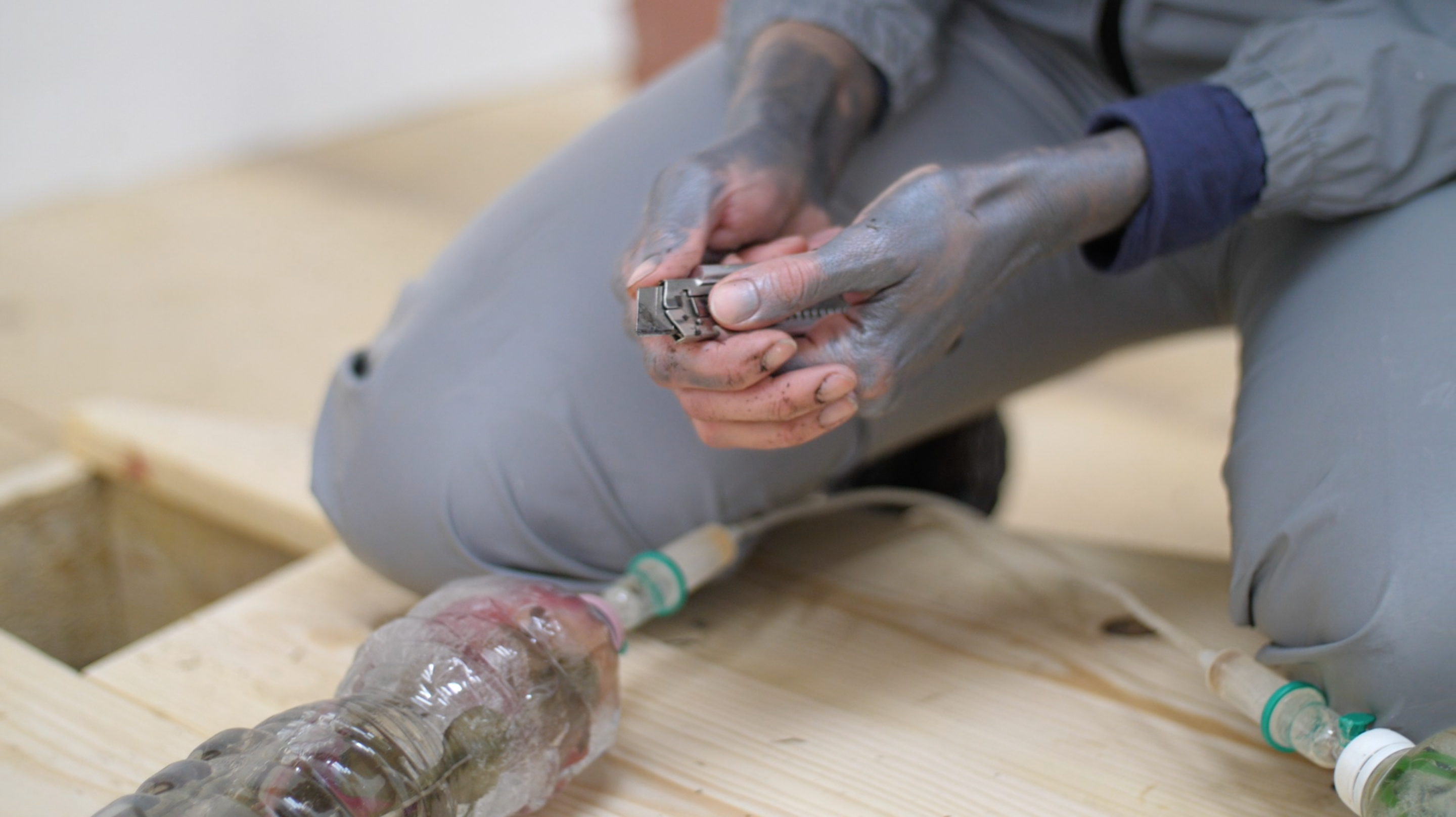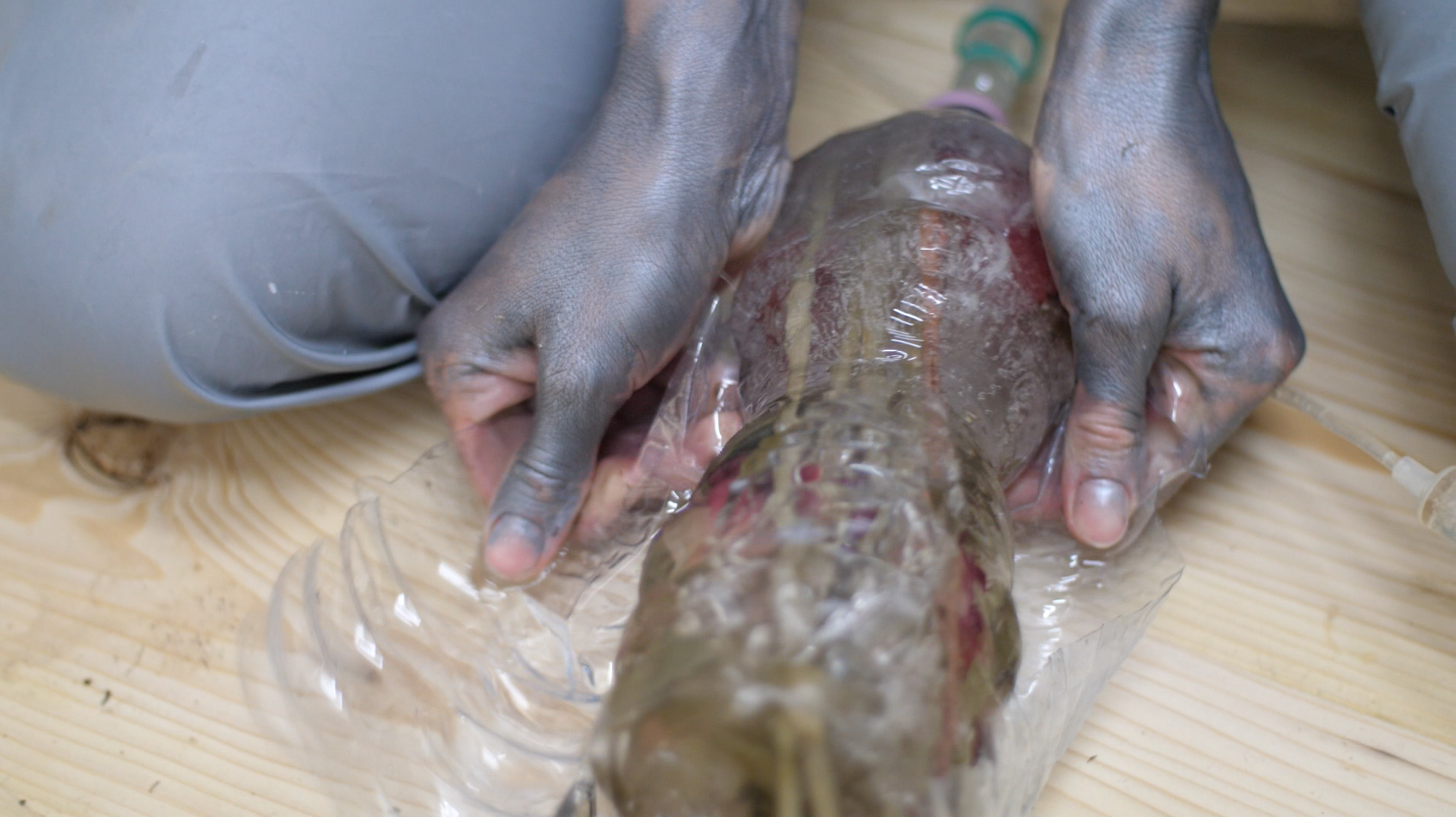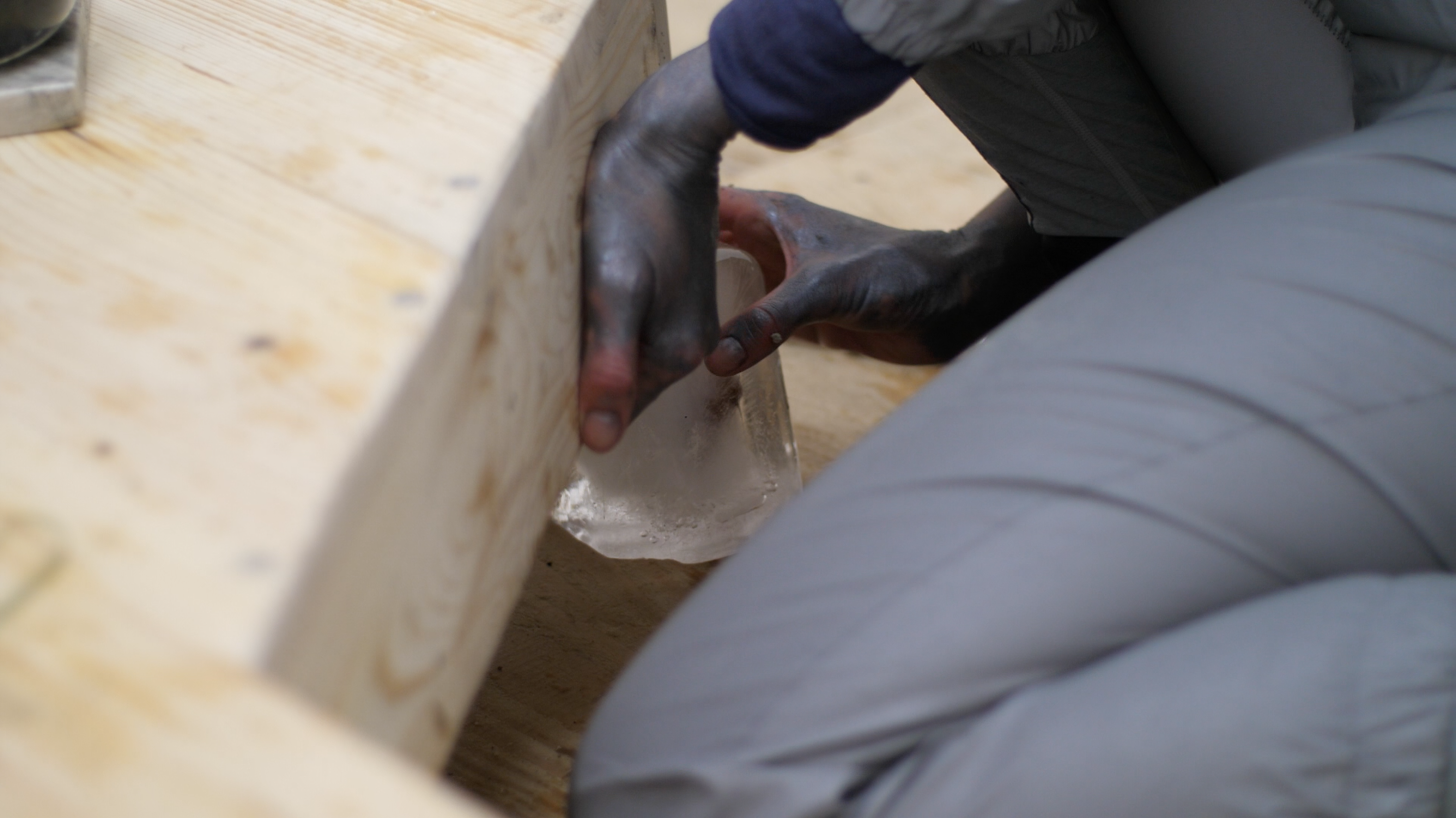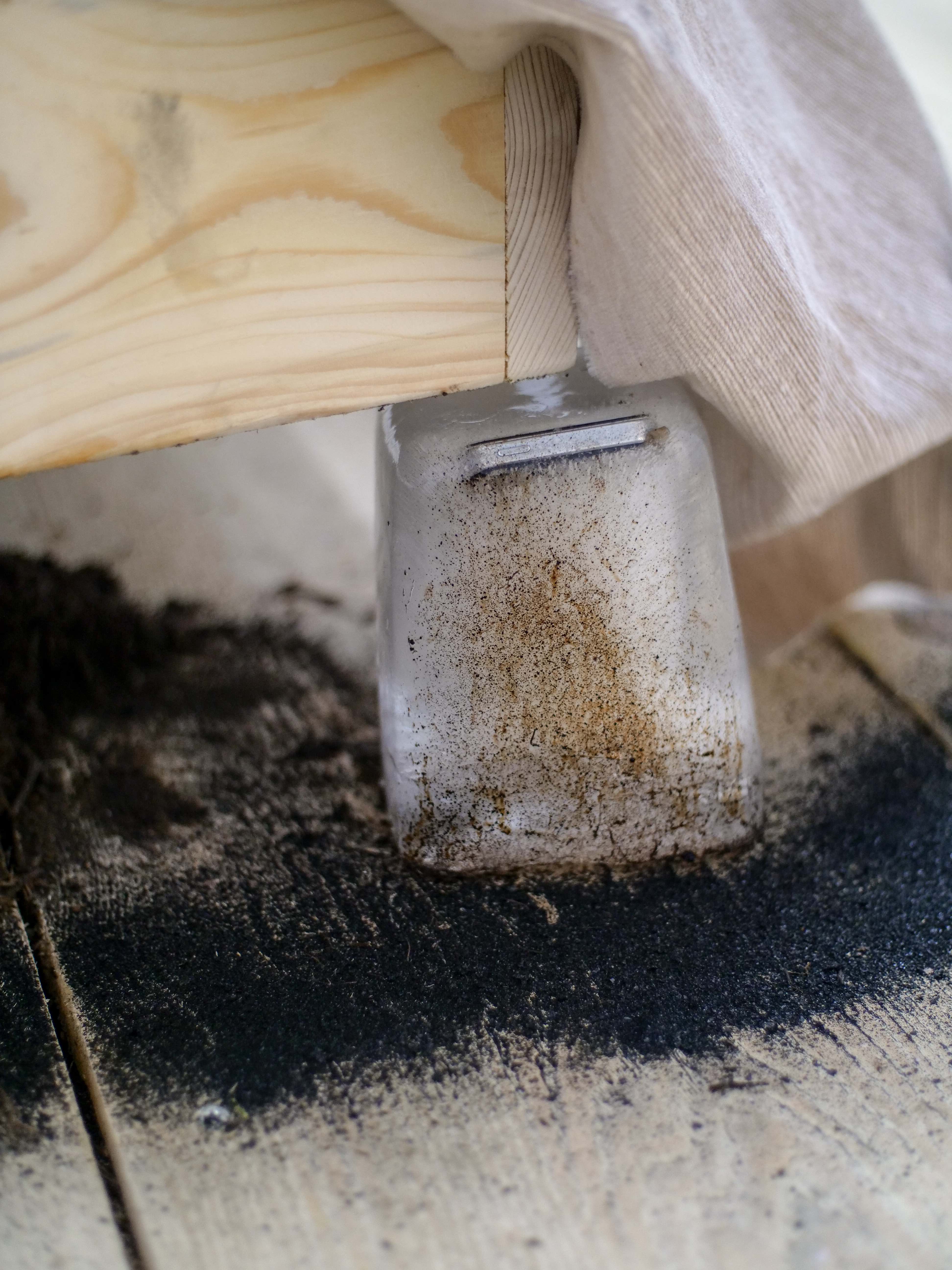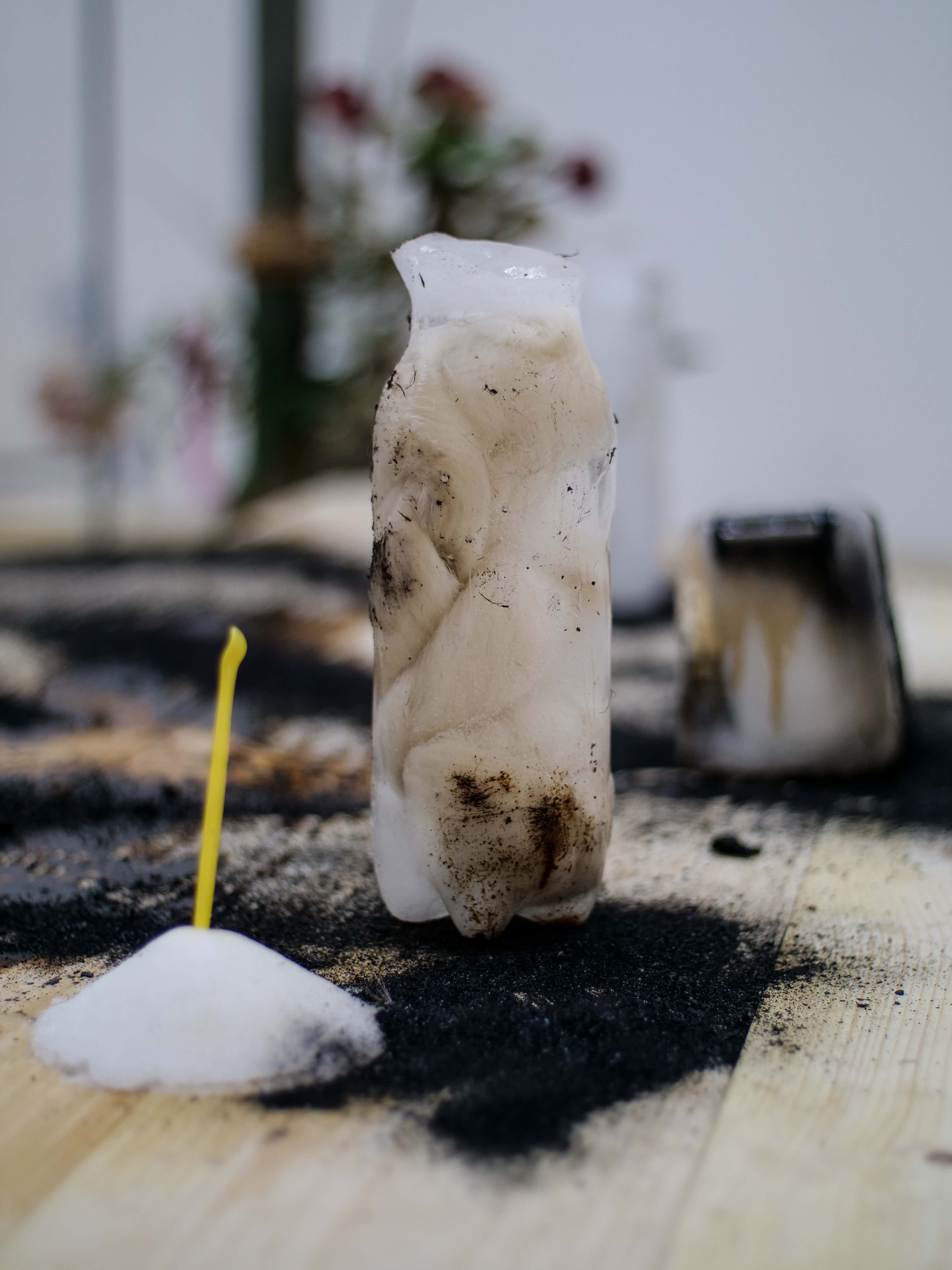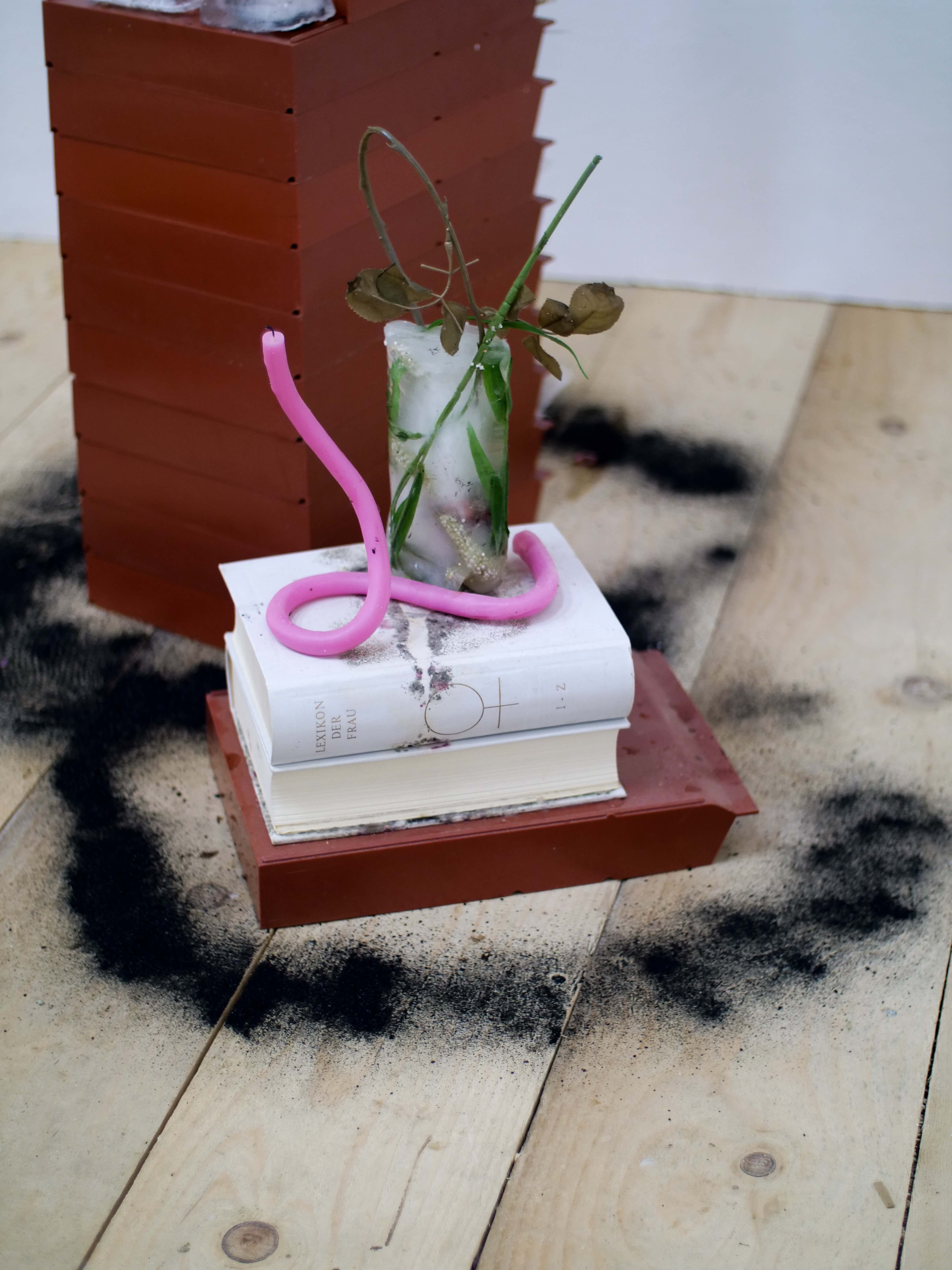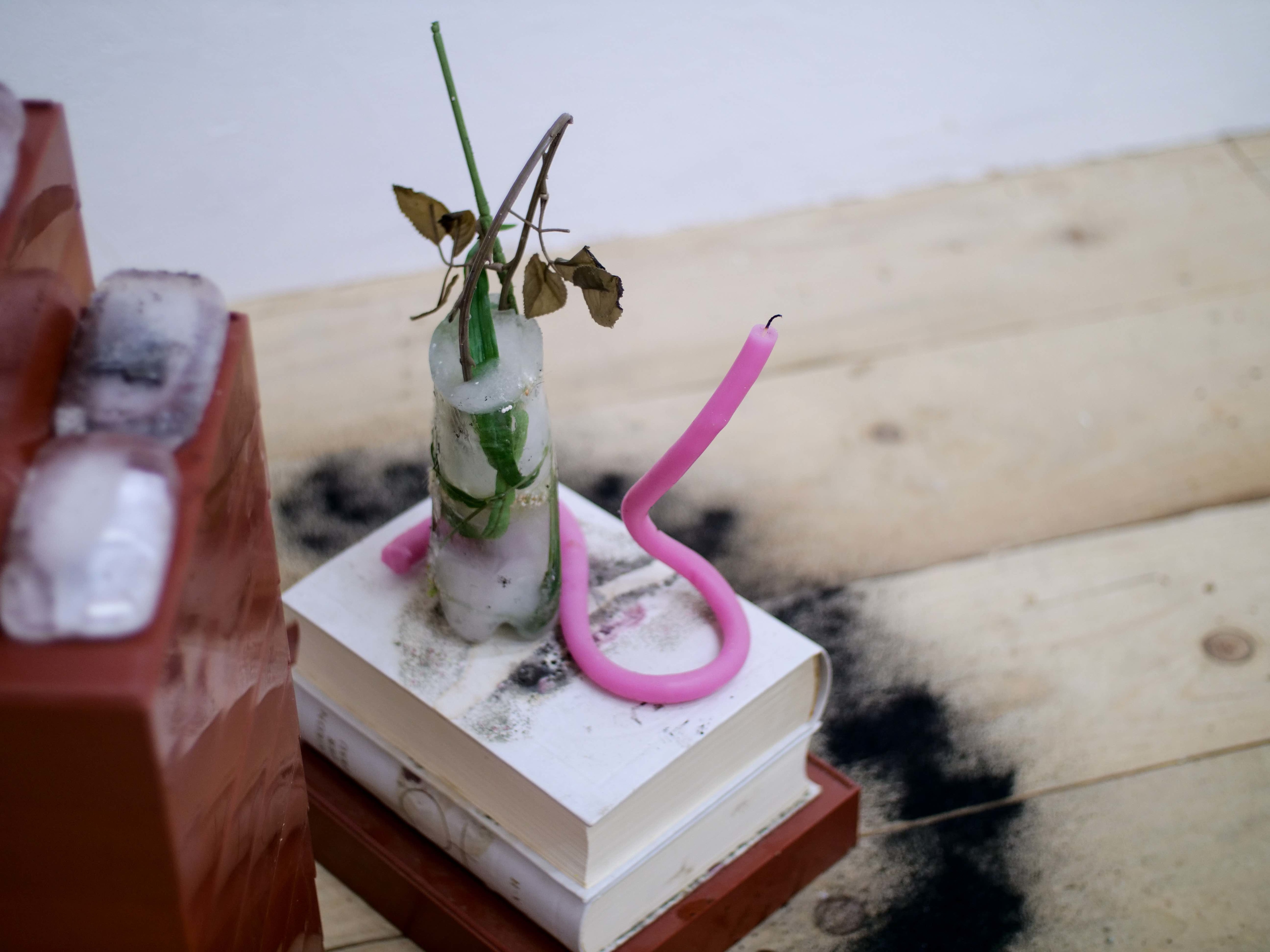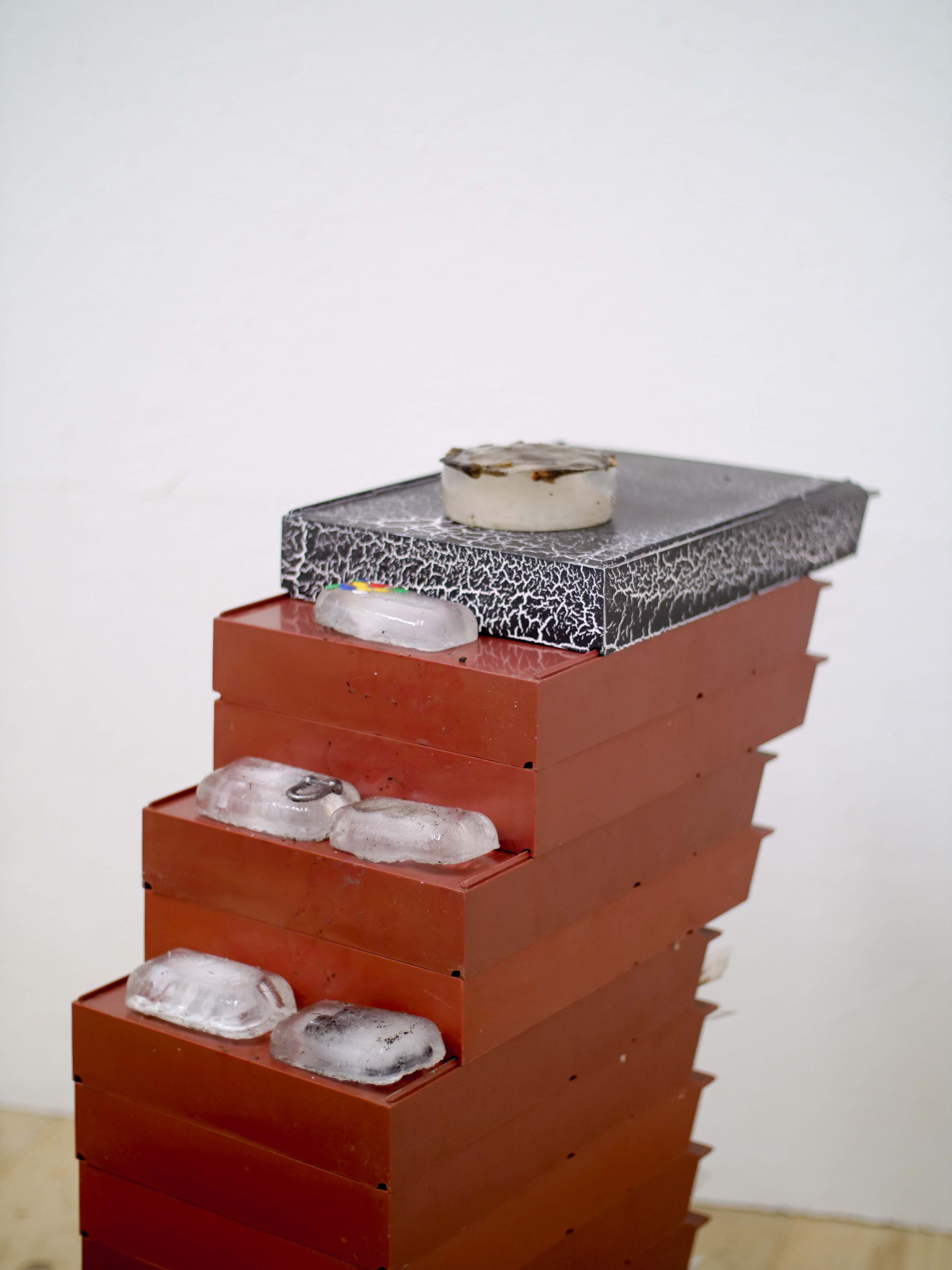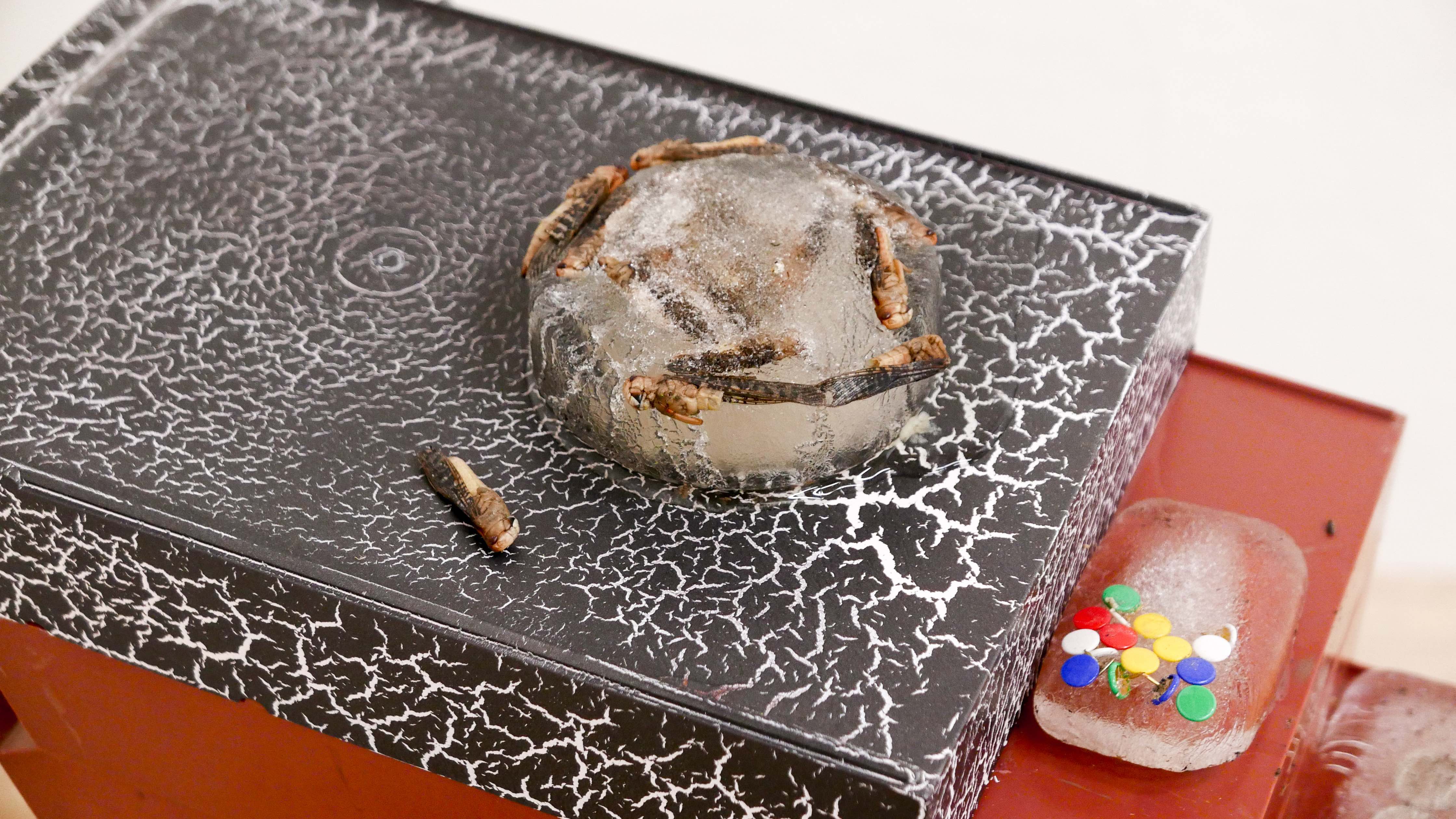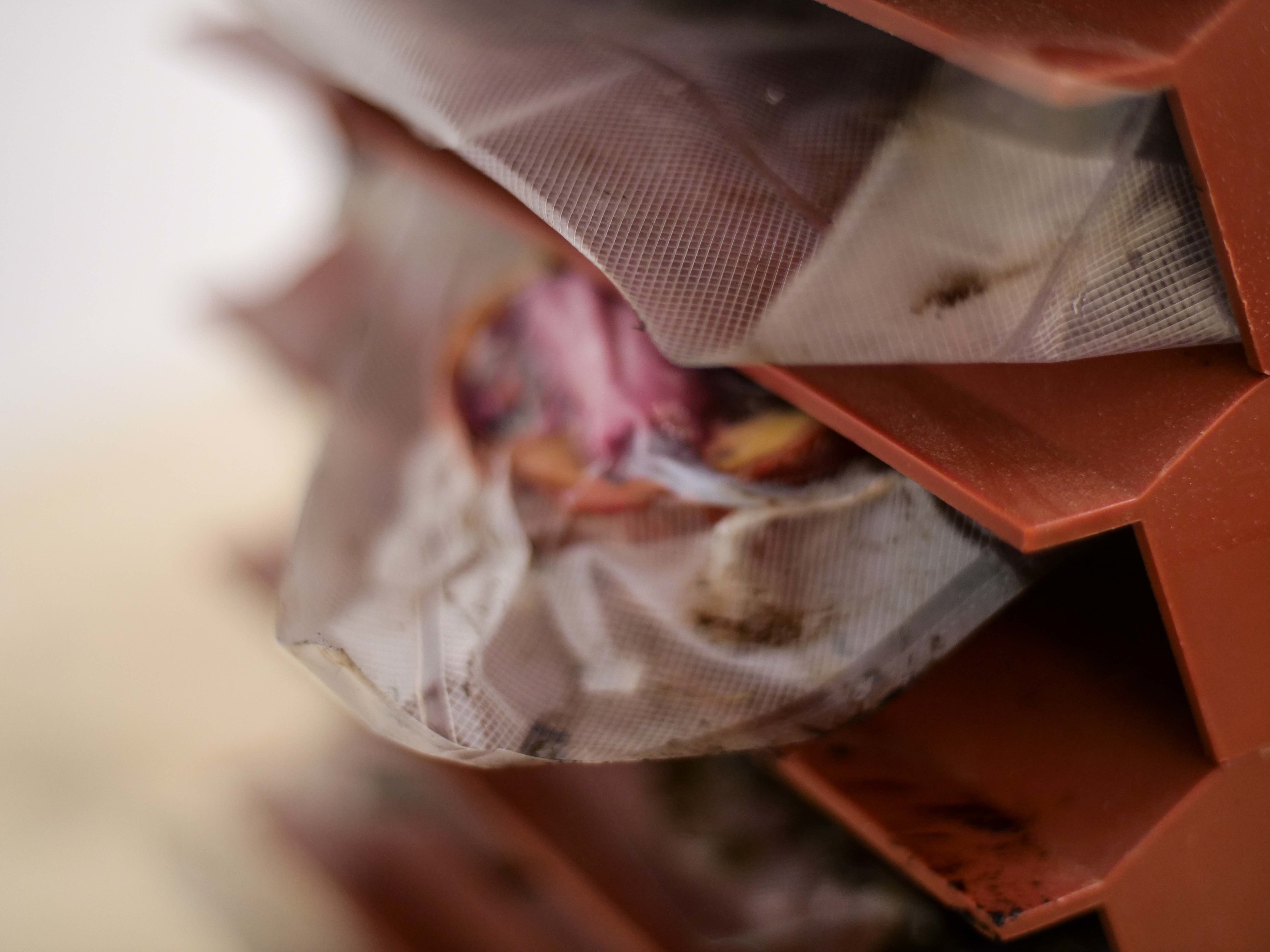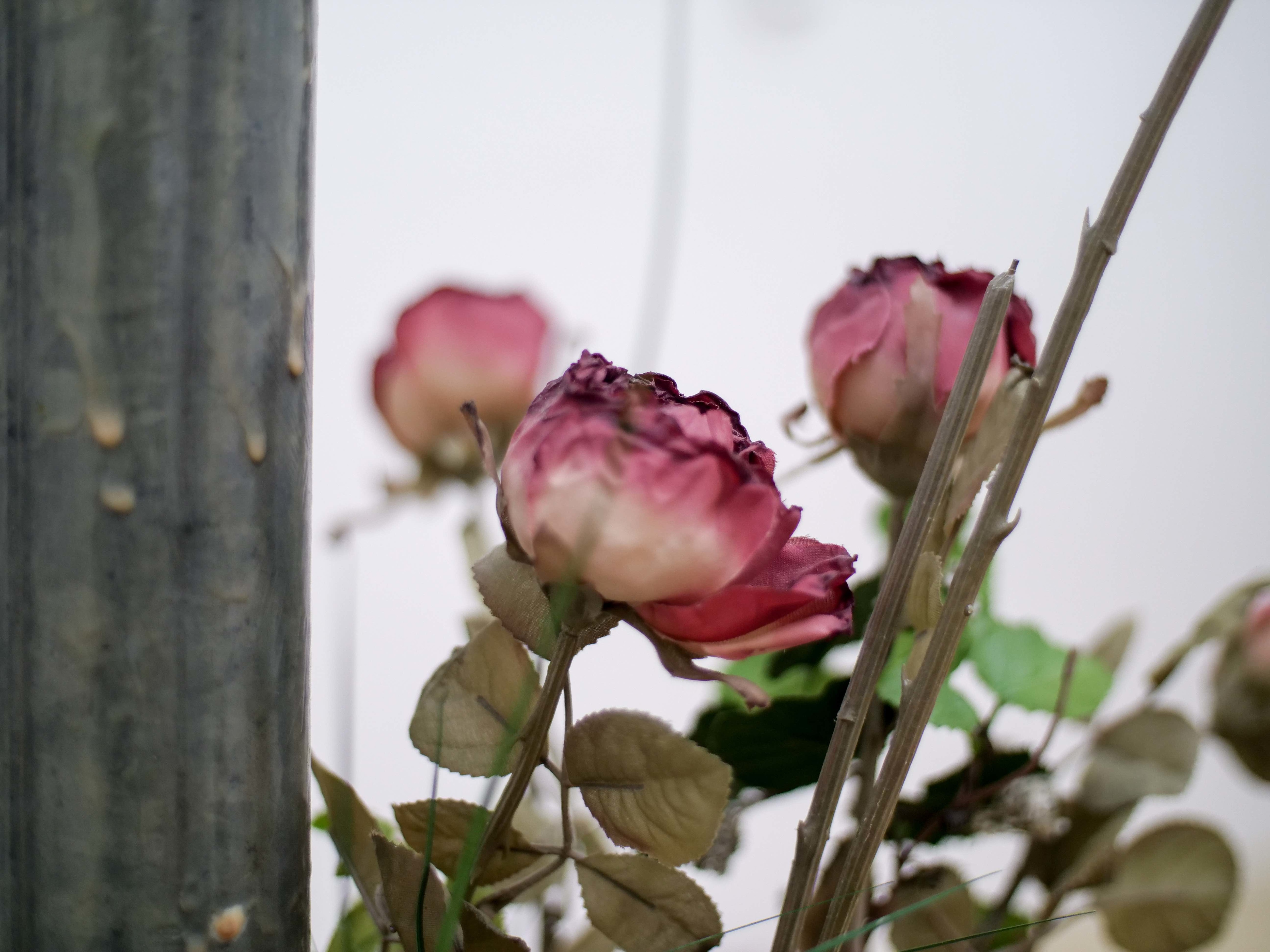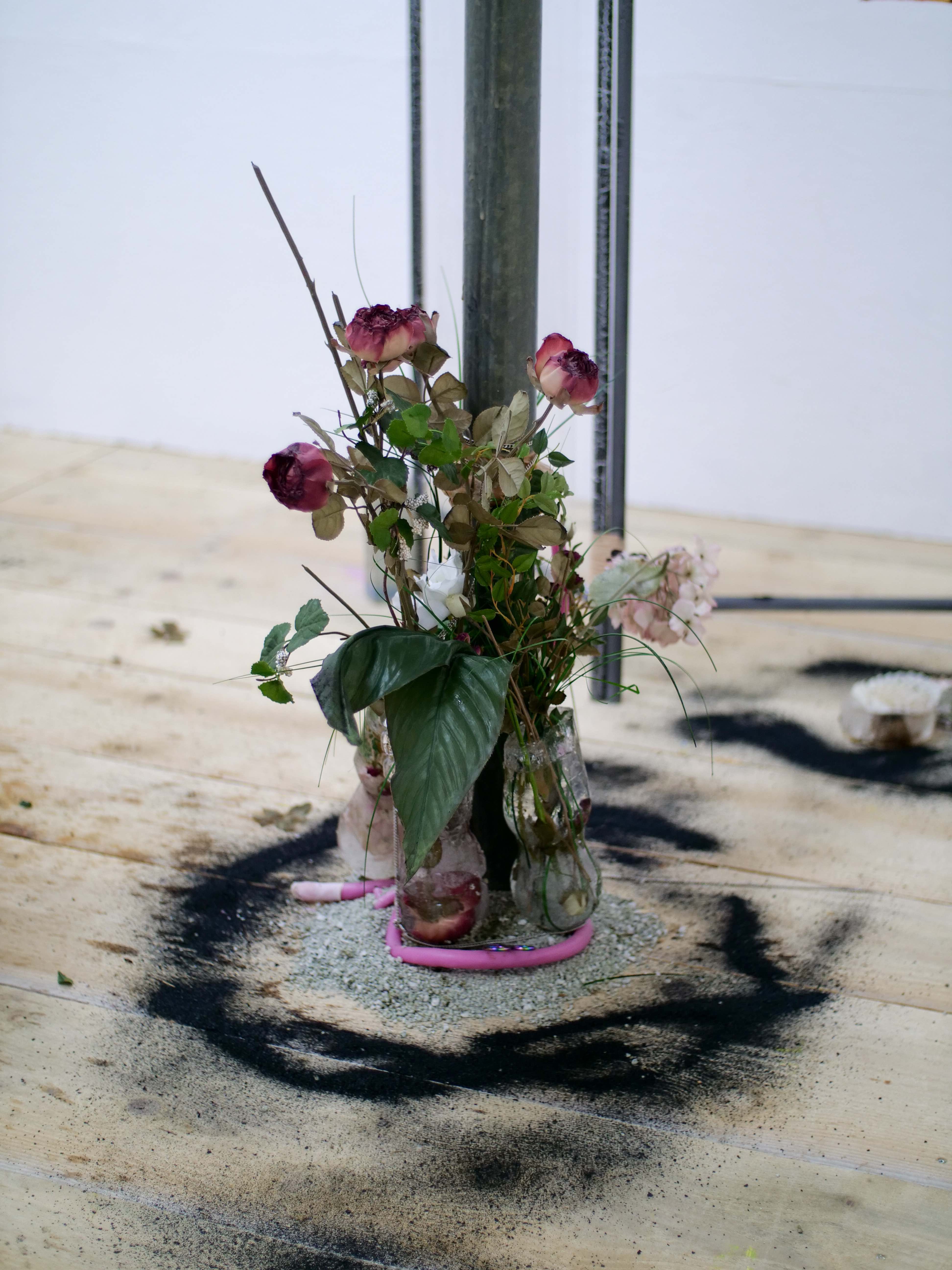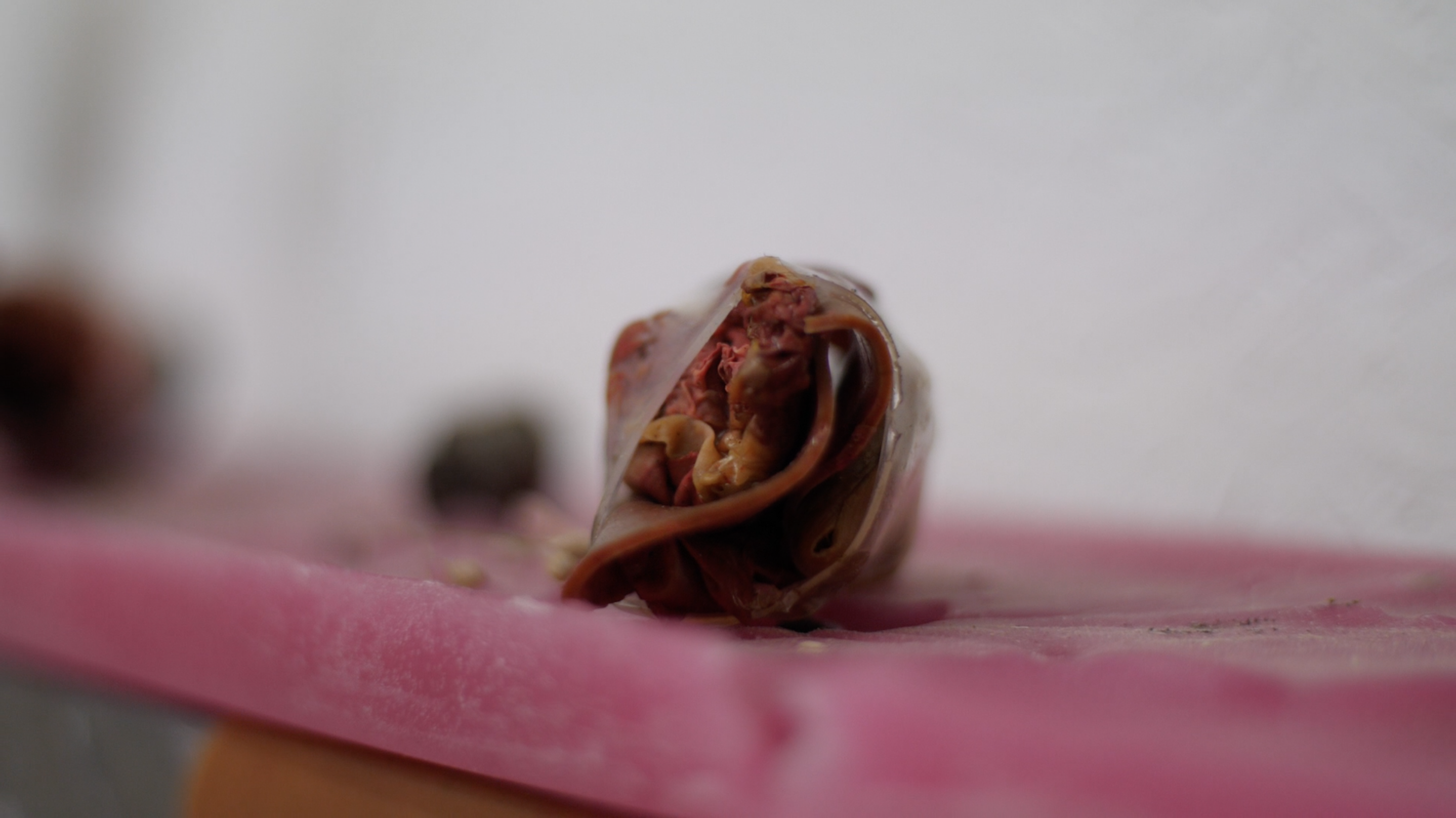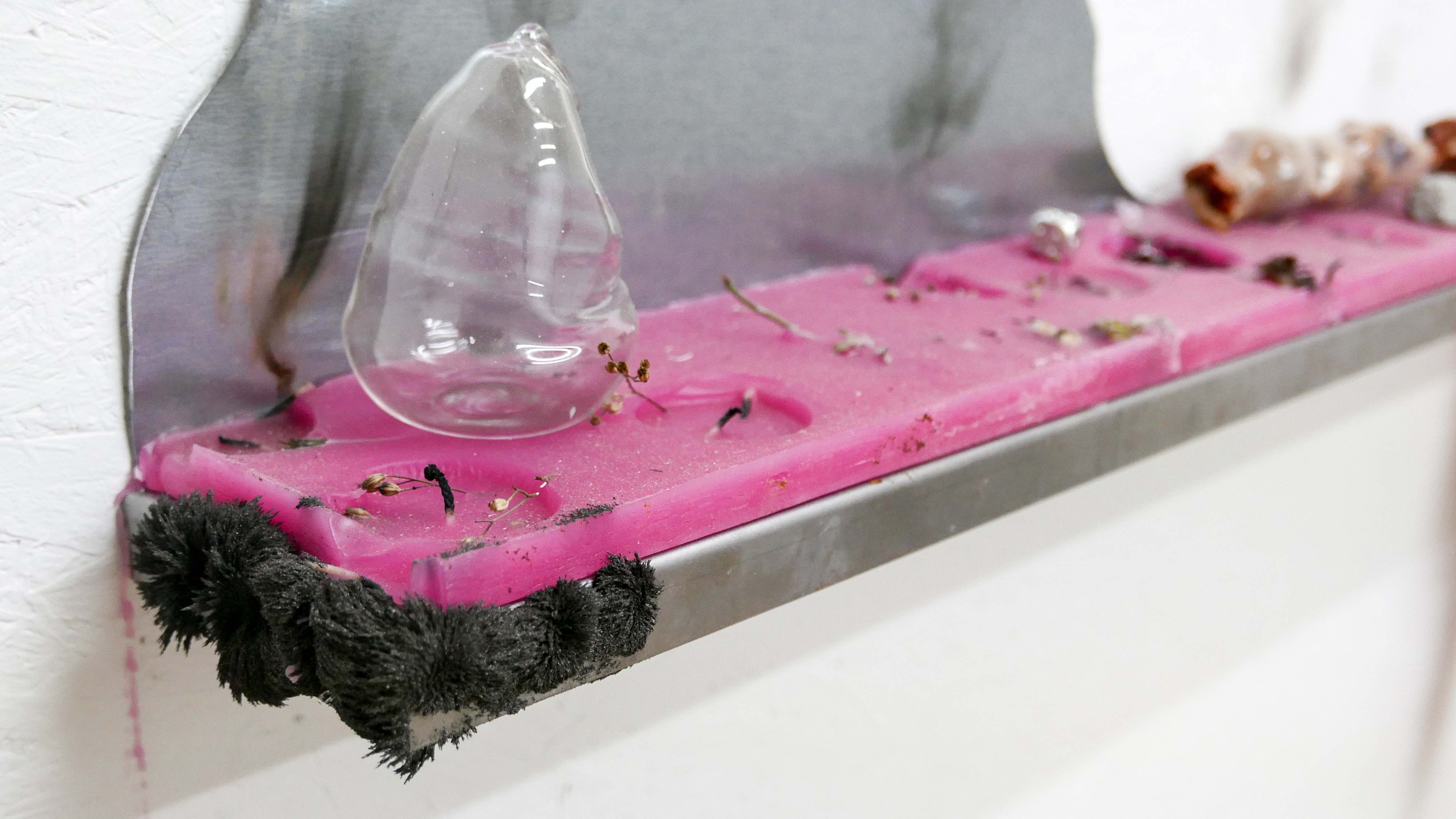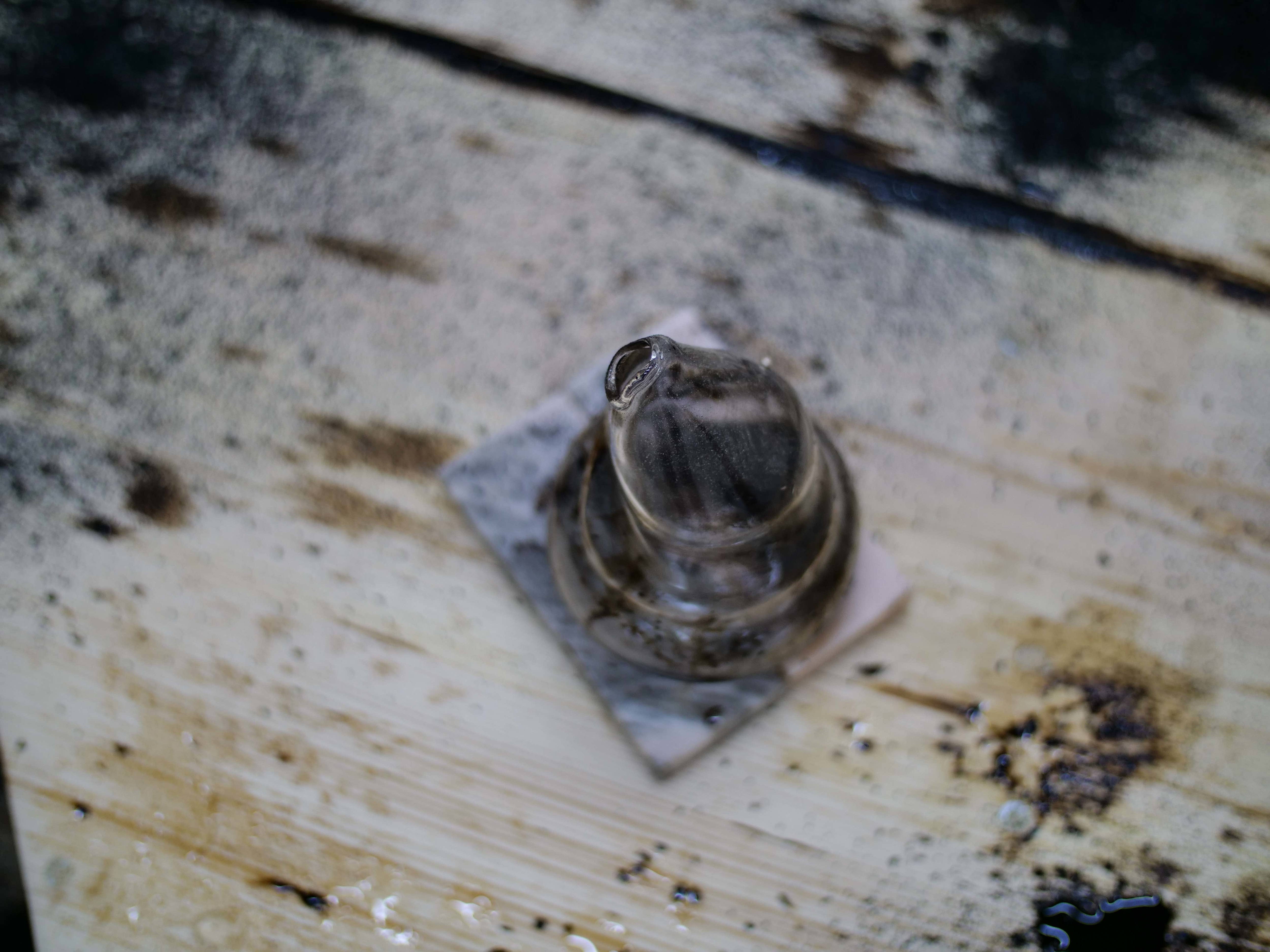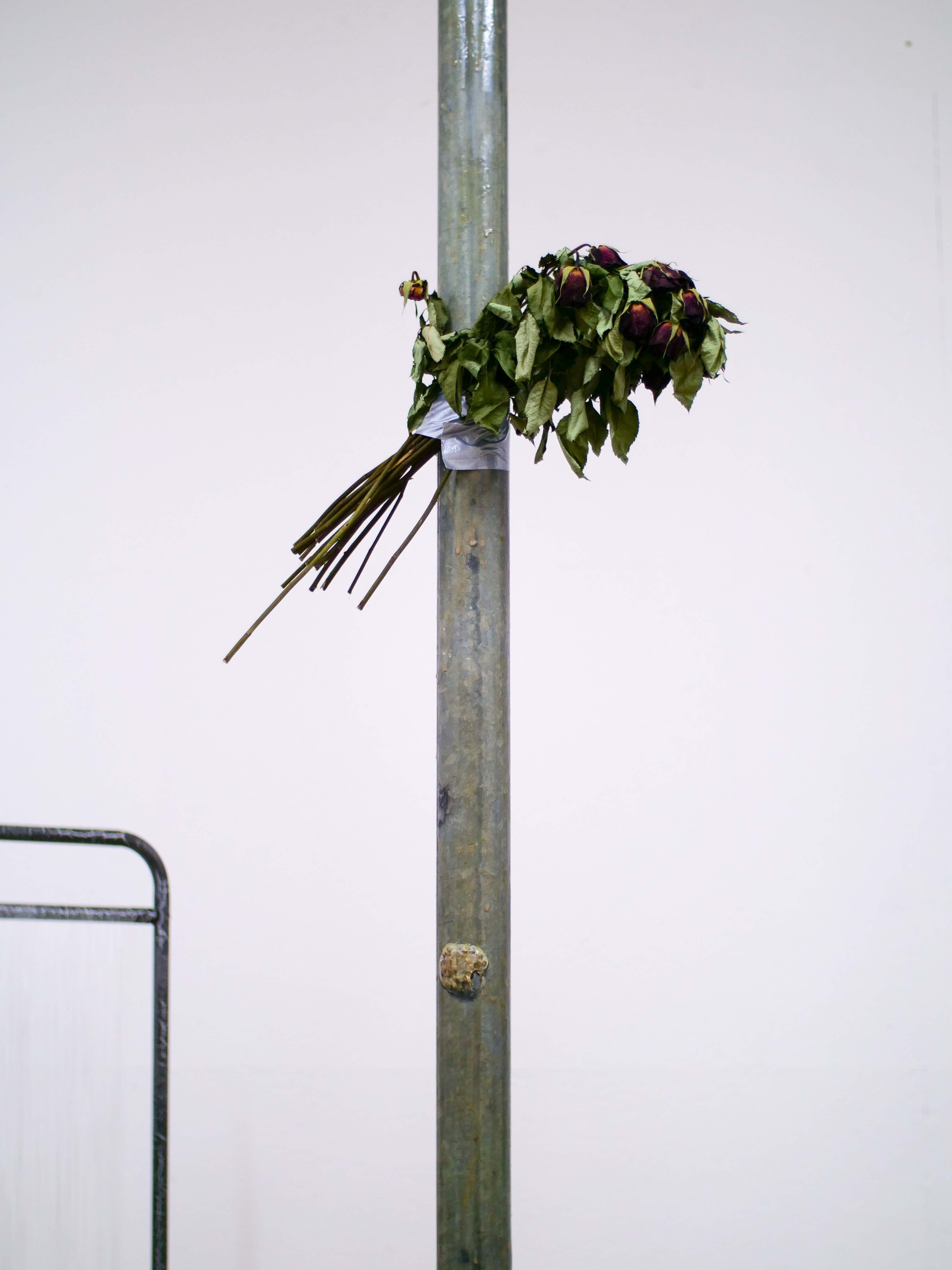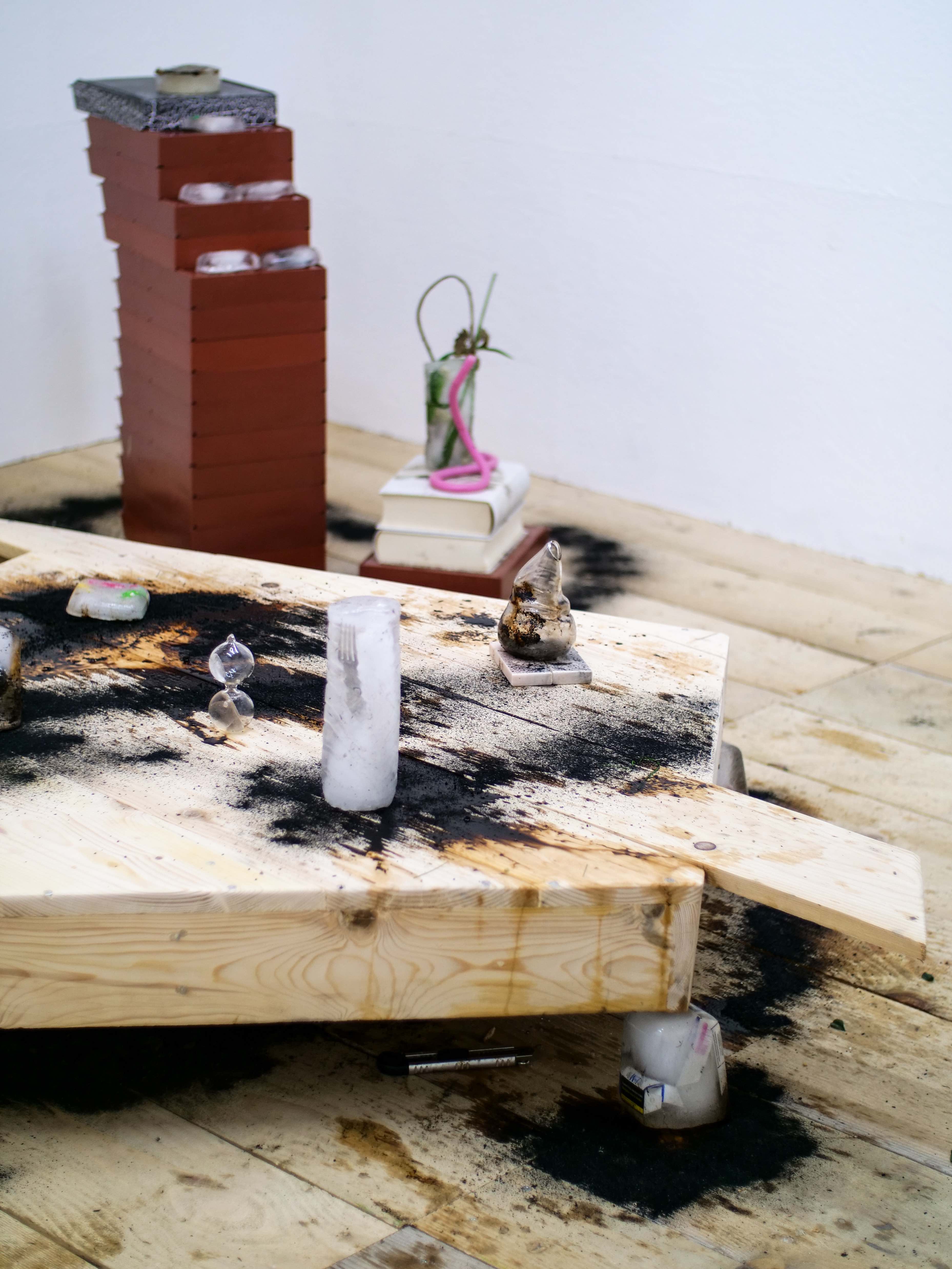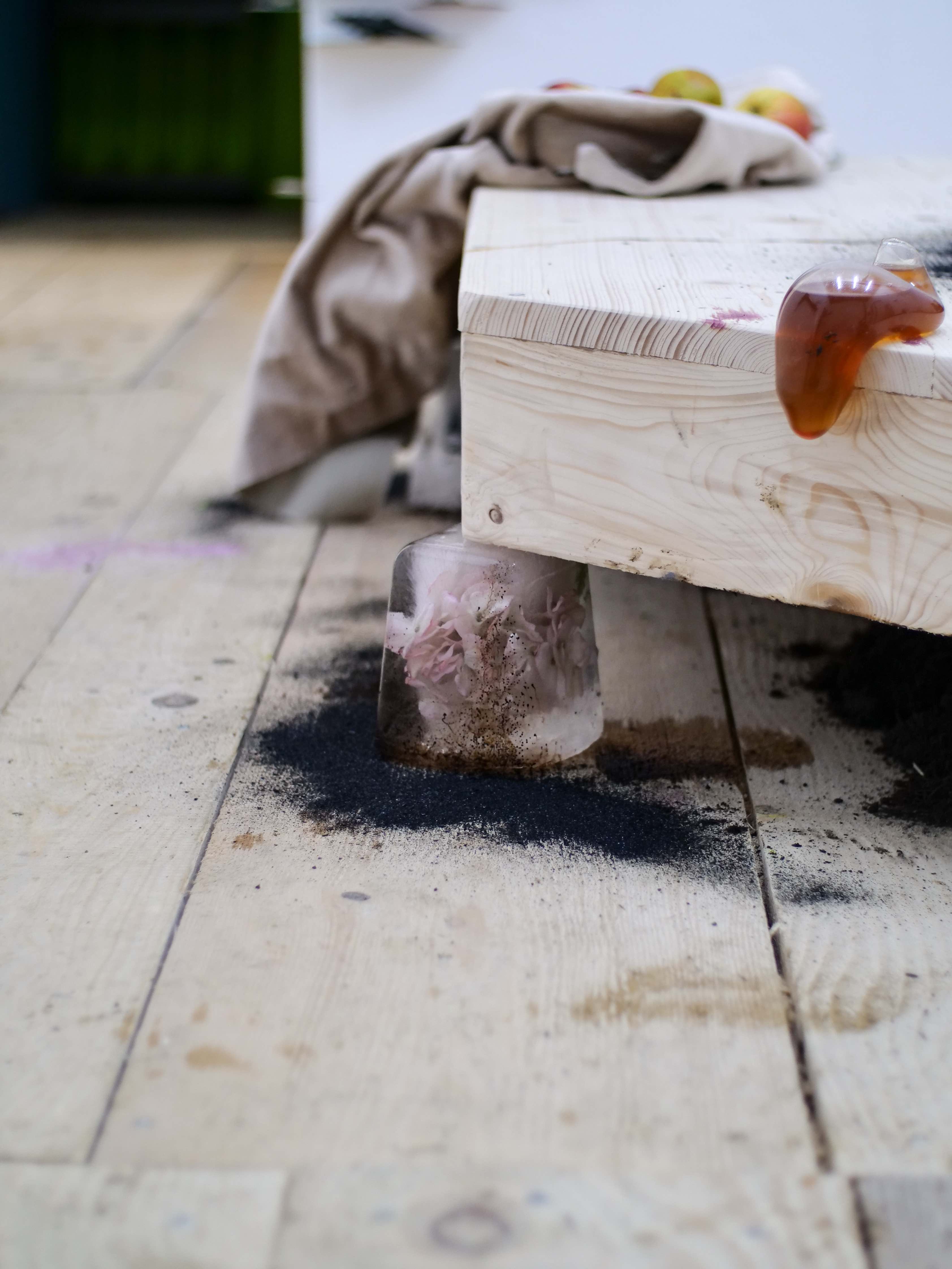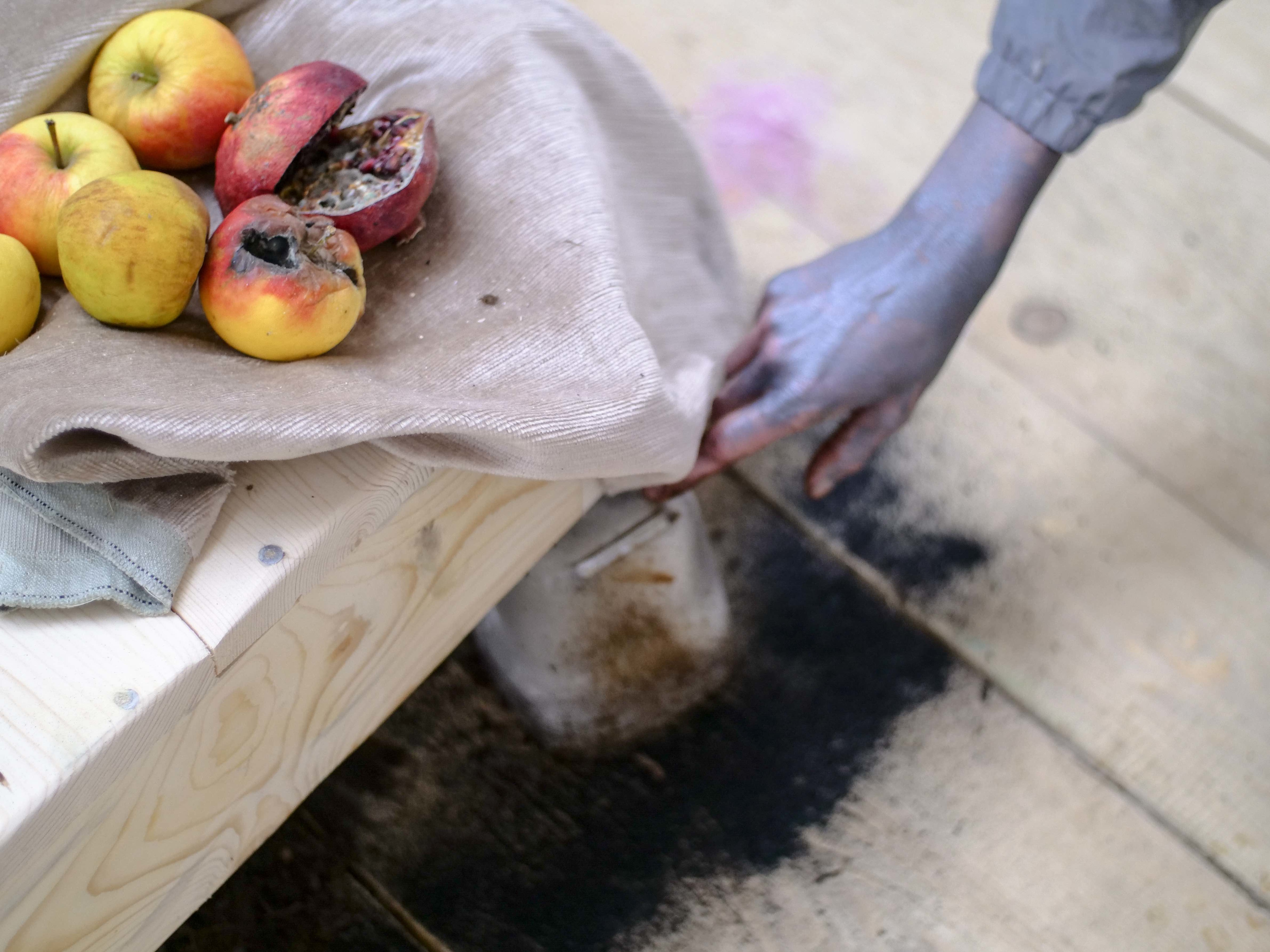MOTH: The Slumber
performance at Museum KKLB in Beromünster, Switzerland.
Unfolding over the course of a year, MOTH takes place in an unheated, open space in rural Switzerland. The installation invites the weather, non-human animals, and other external factors to enter and take effect on the materials, proposing an interspecies audience and a work that sustains life in the forms of nourishment, burrowing ground and habitat. Comprising organic and inorganic matter, the installation takes on an active, transient quality, in which time, materials, gestures, and words shape and affect one another. The work is further enlivened by four performances that are held in-line with the seasons.
The Slumber is the second of four seasonal performances within the exhibition, and took place on February 10th 2019.
Let’s dive deep for a moment, into the dark biosphere. Deep under the earth’s crust, where the PH levels are like battery acid, the temperatures are like the inside of a volcano, and the pressure is beyond compare. Seventy percent of our planets’ bacteria live there; some are millions of years old. The extreme lack of nutrients means they are barely alive; they are zombie microbes, feeding on rocks and water.
It is hard to describe some of this life in terms that we can even understand because they appear to be able to survive for such long periods of time with virtually no energy available. Nearly dead, they’re in a state of dormancy, which is a reversible state of low metabolic activity. It is a strategy for coping with a perpetual lack of energy, initiated by starvation or resource limitation. The metabolism is reserved mostly to essential functions such as biomolecular repair and replacement, rather than to support growth.
Under the neoliberal spell, sleepwalking is the new breathing. Long-dormant bacteria and viruses trapped in ice and permafrost for centuries are reviving as Earth's climate warms. In an economy that covets growth at the cost of anything, death is not a moment but a process. We’re living in the shadow of our own personal apocalypse. "Our inability to conceive a world without boundaries, our inability to imagine infinity, this is our basic illness." (Eugène Ionesco)
Photo credit: Maëlle Gross
Generously supported by Stichting Stokroos
